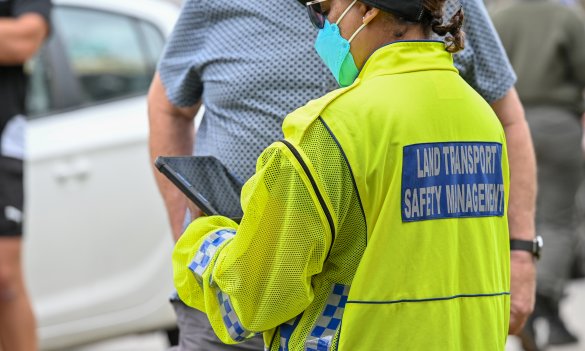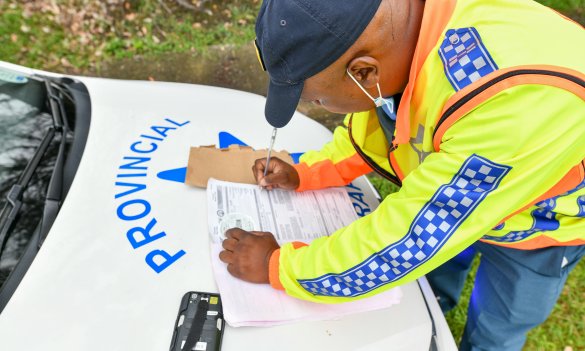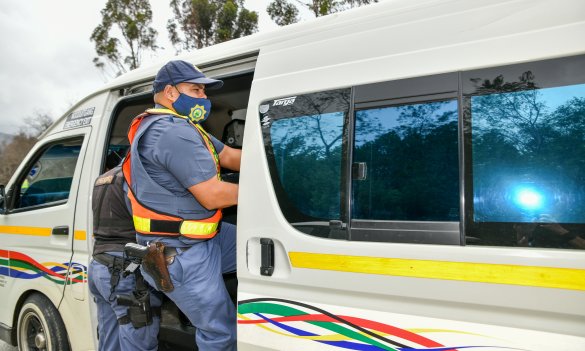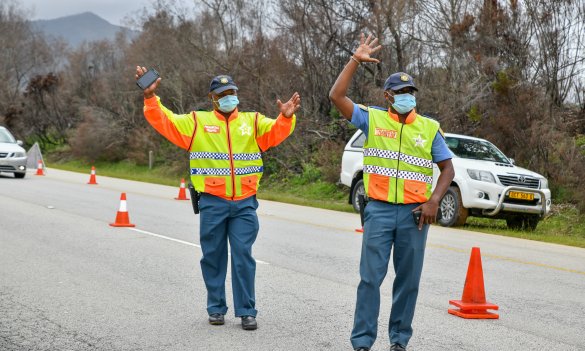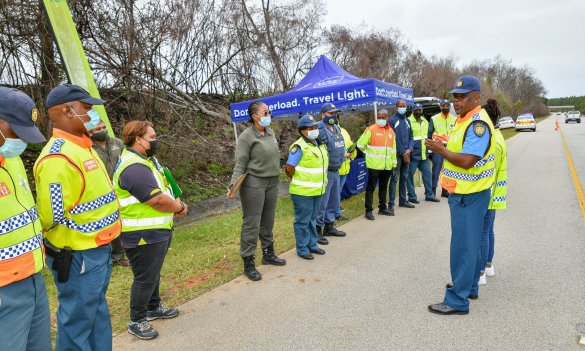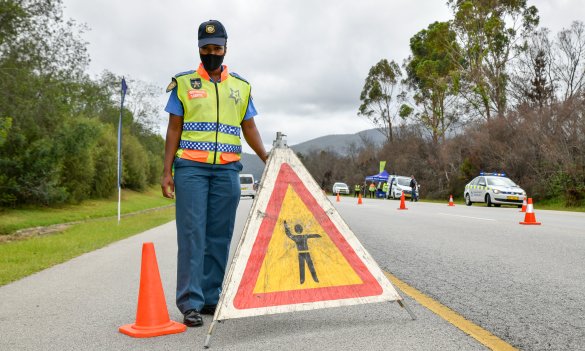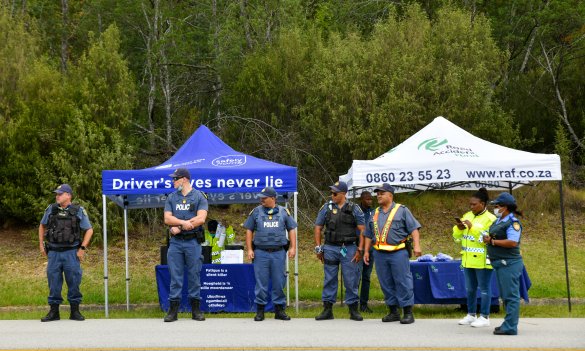Media Release by Daylin Mitchell Western Cape Minister of Transport and Public Works
Western Cape Provincial Traffic Services implemented a total of 203 integrated roadblocks, vehicle check point and speed control operations across the province in the week of 22 to 27 March 2022, 25 042 vehicles were stopped and checked.
A total of 289 speeding offences were recorded and 6 081 fines were issued for various traffic violations ranging from driver to vehicle fitness in the total amount of R5 678 450.
Thirty vehicles were impounded and 57 were discontinued for unroadworthiness.
Speeding is a serious concern. The faster you drive, the less time you have to respond to an emergency and the more space you need to stop to avoid a crash. Speeding is irresponsible and dangerous. The highest speeds recorded this week were as follows:
- 167 km/h in a 120 km/h zone
- 144 km/h in a 100 km/h zone
- 124 km/h in a 80 km/h zone
- 104 km/h in a 60 km/h zone
National Road Traffic Act, Criminal Procedure Act, and Disaster Management Act regulations
A total of 46 arrests were made for the following offences:
- 22 x driving under the influence of alcohol
- 3 x speeding
- 5 x reckless and negligent driving
- 1 x goods overloading
- 8 x possession of fraudulent documentation
- 4 x bribery
- 1 x possession of narcotics
- 1 x failing to furnish information
- 1 x crimen injuria
Fatalities recorded between 22 to 27 March 2022
A total of 29 crashes occurred in the reporting period, and 29 fatalities were recorded:
- 8 x drivers
- 1 x other
- 2 x motor-cyclists
- 5 x passengers
- 13 x pedestrians
Let’s all take personal responsibility for making our roads safer
In March, and in every other month of the year, traffic and road safety officers of the Department of Transport and Public Works will be hard at work making our roads safer. But road safety is everyone’s responsibility. Whether we use the road as drivers, passengers, cyclists, motorcyclists or pedestrians, every one of us should take personal responsibility for our behaviour as road users. Let us all strive to #BeTheChange we want to see on Western Cape roads.
“Round-the-clock traffic law enforcement efforts and safety campaign activities will continue across the province. We appeal to all road users to be considerate and comply with the law,” said Vigie Chetty, Acting Director: Traffic Law Enforcement. “How we behave on the roads affects our own safety, and the safety of every other person on the road,” she added.
Even small amounts of alcohol can affect your judgement as a driver or a pedestrian. Take personal responsibility and do not drive or cycle when you have been drinking. Make other arrangements to get home. If you are stopped by a law enforcement officer and the officer suspects that you are over the legal limit, you will be arrested. If you are convicted of driving under the influence of alcohol, you will have a criminal record.
Take personal responsibility for your own safety when you walk near a road. Don’t drink and walk. Don’t wear headphones or earphones when you cross a road. Only cross roads where it is safe to do so. Wear visible clothing, especially at night. Motorists can only avoid you if they can see you.
If you are tired, pull over and rest. On a long journey, plan to take rest breaks in safe places every 200 km or 2 hours. Take personal responsibility for your own safety and for the safety of others by never driving when you are tired. Don’t allow yourself to be distracted when you are driving or walking. No phone call or message is so important that it is worth risking your life, or the lives of others.
If you drive a public transport vehicle, be extra careful. Take personal responsibility for ensuring the safety of your passengers. Make sure your vehicle is roadworthy and that your operating licence is in order. Adhere to all the applicable COVID-19 safety restrictions. Ensure that you and all occupants are wearing a mask and sanitising regularly. Observe passenger limits – 100% of licensed carrying capacity for journeys shorter than 200 km, and 70% of carrying capacity for journeys of more than 200 km. Make sure the windows are at least 5 cm open on both sides of your vehicle at all times. DTPW uses electronic systems to monitor public transport vehicles, drivers, and trips. The details of operating licences are available to traffic officers in real time. Tired drivers will be pulled off and made to rest before they resume their onward journeys.
Never speed. Speeding drivers risk the lives of the people in their vehicles, and the lives of others. Take personal responsibility and drive at a safe speed at all times. It’s the only way that you will be able to react to emergencies in time.
It’s up to you to make the difference. #BeTheChange you want to see on our roads.
Media queries:
Ntomboxolo Makoba-Somdaka
Spokesperson for Minister Daylin Mitchell
Cell: 082 953 0026
Email: Ntomboxolo.Makoba-Somdaka@westerncape.gov.za

